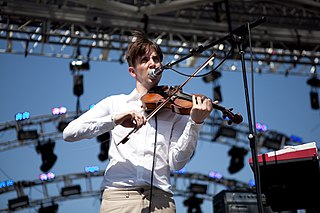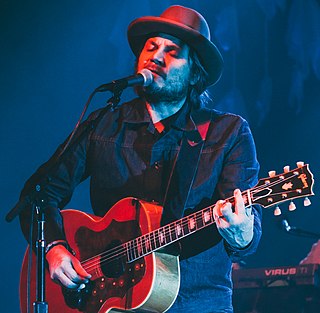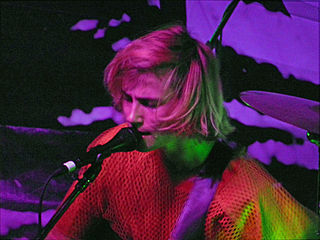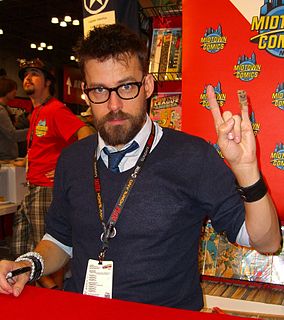A Quote by Marie Calloway
One thing about having mostly absent parents that I think was perhaps "good" for the development of my intellect/writing is that I was given almost total freedom to read/write/look at whatever I wanted. I wonder a lot about how my past experiences, particularly my negative childhood (home life and being severely bullied/ostracized throughout school) as formed my/my thoughts/my writing, though I should also note those things were far from the only thing that had an impact on me/my writing.
Quote Topics
About
Absent
Almost
Also
Being
Bullied
Childhood
Development
Experiences
Far
Formed
Freedom
Freedom To Read
Given
Good
Had
Having
Home
Home Life
How
Impact
Intellect
Life
Look
Lot
Me
Mostly
My Past
My Thoughts
Negative
Note
One Thing
Only
Parents
Particularly
Past
Past Experiences
Perhaps
Read
School
Should
The Only Thing
Thing
Things
Think
Those
Though
Thoughts
Throughout
Total
Total Freedom
Wanted
Were
Whatever
Wonder
Write
Writing
Related Quotes
I made a real specific decision when I came out of school and most artists were writing about home - if you were a woman, you were writing about being a woman - and I decided not to do that, write about what you know. That's not what I do. I went as far away from home as possible in terms of the development of my imagination.
I was able to notice in a very early stage, there were discrepancies between the people who are writing the songs and discrepancies about the self that I was writing about. I was feeling that there were all these different people, both writing the record and having the record being written about them, even though ostensibly it was me sitting down and documenting a series of life experiences. Part of that, when I recognized this unconscious thing I was doing, was about these spaces, about these gaps.
I think all writing is about writing. All writing is a way of going out and exploring the world, of examining the way we live, and therefore any words you put down on the page about life will, at some level, also be words about words. It's still amazing, though, how many poems can be read as being analogous to the act of writing a poem. "Go to hell, go into detail, go for the throat" is certainly about writing, but it's also hopefully about a way of living.
To be honest, I’m more concerned with living my life than writing about my life. I feel like that’s really the main thing I know now that I didn’t know when I was younger — and that is that you have to have a life to write about one. If you’re more worried about having experiences so you can write about them, I think you’re kinda being ridiculous, and I think a lot of young people look at it like that.
I didn't want the lyrics to be about specific things in my life, I wanted them to be about generalised experiences I'd had. So when I'm writing about relationships or somebody leaving you or something, a lot of lyrics are partly about failed relationships I'd had, but they were also about my Dad, and being abandoned as a kid.
I thought, "Well, I'm writing about early childhood, so maybe it would make sense to write about late childhood as well, early adulthood." Those were my thoughts, and this was how this crazy book [Winter Journal] was composed. I've never seen a book with pictures like at the end, pictures related to things you've read before.
I think the first thing - if you want to be a writer - the first thing you need to do is write. Which sounds like an obvious piece of advice. But so many people have this feeling they want to be a writer and they love to read but they don't actually write very much. The main part of being a writer, though, is being profoundly alone for hours on end, uninterrupted by email or friends or children or romantic partners and really sinking into the work and writing. That's how I write. That's how writing gets done.
That's one thing brands are understanding is, I'm the blogger who's not writing about fashion. I'm not writing about beauty. I'm not writing about gossip. I'm not writing about politics. I'm writing about all of that. I'm the person they can come to if they just want to reach people who care and have their fingers on pop culture.
I liked to write from the time I was about 12 or 13. I loved to read. And since I only spoke to my brother, I would write down my thoughts. And I think I wrote some of the worst poetry west of the Rockies. But by the time I was in my 20s, I found myself writing little essays and more poetry - writing at writing.
One of the greatest things about 'Continuum' is how great the writing is; our writing room is one of the most talented ones I've ever had. It really helps me as far as character development because they paint a very descriptive picture of who the characters are while still letting us have freedom to put in our own ideas.
The thing that has always baffled me about people's perception of my writing is the sense that I'm a very controversial, opinionated, polarizing person. I feel like I write about things that I'm interested in, and I describe why they're interesting to me. I could be negative, I guess. It's far easier to write why something is terrible than why it's good.



































